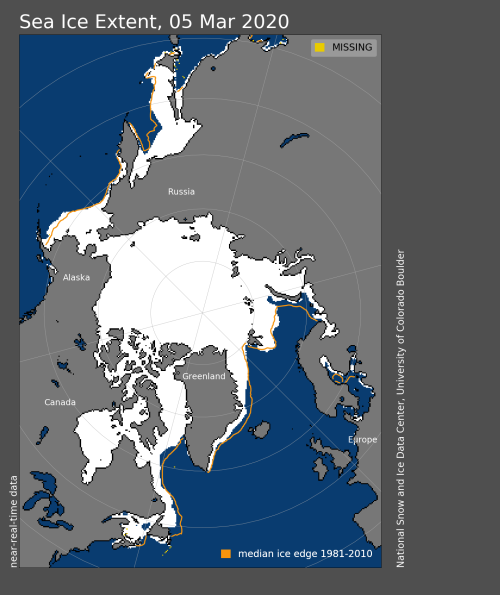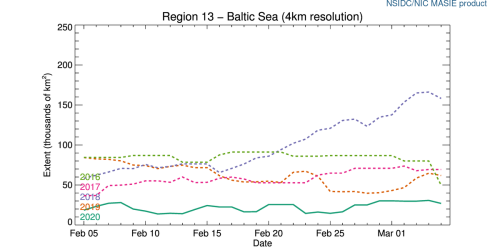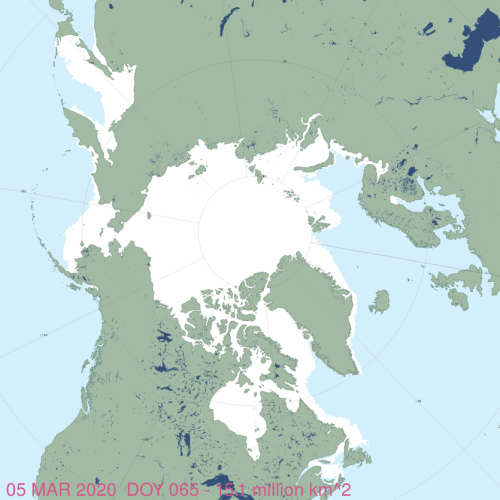The most positive thing that US National Snow and Ice Data Center sea ice experts could say about this year’s winter sea ice maximum was that it wasn’t a record breaker. But it provides ample polar bear habitat when the bears need it most: just before the critical spring feeding season.

In fact, they said: “The 2020 maximum sea ice extent is the eleventh lowest in the 42-year satellite record, but the highest since 2013.” All that winter ice is essential polar bear habitat just before the critical spring feeding season (Crockford 2019, 2020) and it’s one of the reasons that polar bears are thriving.
The table included in this year’s maximum sea ice report was a list of the ten lowest years since 1979 and 2020 wasn’t on it. The winter max extent for 2020 was 15.05 mkm2.
The report also noted that, “for the Arctic maximum, which typically occurs in March, the uncertainty range is ~34,000 square kilometers (13,000 square miles), meaning that extents within this range must be considered effectively equal” and made special pains to point out that “maximum extent is not predictive of minimum extent“.
In other words, don’t get your hopes up that ample sea ice this winter will mean abundant sea ice at the end of summer.
NSIDC Masie graphs for 5 March below, by region starting with the Northern Hemisphere:

The Baltic Sea and Sea of Okotsk (below) are included in the Arctic total but polar bears don’t live there, so the lower than usual ice levels in those regions this winter have had no impact on available polar bear habitat.


NSIDC Masie ice chart for 5 March 2020 puts the total ice extent at 15.1 mkm2:

REFERENCES
Crockford, S.J. 2019. The Polar Bear Catastrophe That Never Happened. Global Warming Policy Foundation, London. Available in paperback and ebook formats.
Crockford, S.J. 2020. State of the Polar Bear Report 2019. Global Warming Policy Foundation Report 39, London. pdf here.


